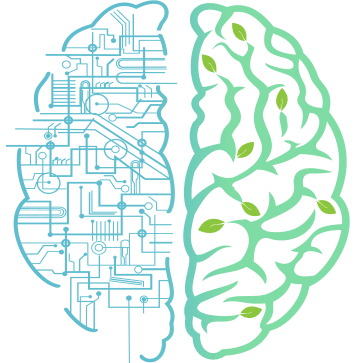In a world where financial decisions shape our daily lives, financial illiteracy stands as a silent epidemic affecting millions.
Key Points:
- Financial illiteracy is a widespread issue affecting personal and societal economic stability.
- It involves a lack of knowledge in managing personal finances, resulting in poor budgeting, excessive debt, and inadequate savings.
- Consequences include personal financial stress, societal economic instability, and increased emotional distress.
- Strategies to combat financial illiteracy include educational initiatives, support from financial institutions, and the use of technology.
- Experts emphasize the importance of financial education for individual and societal well-being.
- Addressing financial illiteracy requires proactive efforts from individuals, communities, and institutions.
Understanding Financial Illiteracy
At its core, financial illiteracy manifests as:
- Poor budgeting habits
- excessive debt
- inadequate savings
Statistics
- Global Financial Literacy: Only one-third of adults worldwide understand basic financial concepts.
- Financial Illiteracy in the U.S.: 4 in 7 Americans are financially illiterate.
- Millennials’ Financial Knowledge: Only 24% of millennials have basic financial knowledge.
- Young Americans’ Financial Literacy: Only 17% of young Americans could answer four out of five financial questions correctly.
The Dire Consequences
The repercussions of financial illiteracy translates to constant financial stress, an inability to cope with emergencies, and a life mired in debt. Lack of personal finance education not only impacts the individual but also spreads to their family and friends
Debt and Poor Credit:
For many young Americans, the lack of financial literacy can lead to burdensome debt and poor credit, which can create significant barriers to securing housing and jobs. The National Longitudinal Survey of Youth points out that many young Americans, particularly the 5.5 million “disconnected youth” aged 16-24 who are not in school or working, have little understanding of interest rates or how to calculate a mortgage payment. This gap in knowledge can lead to financial decisions that have long-lasting negative consequences.
Personal Financial Losses:
According to the National Financial Educators Council, U.S. adults lost an average of $1,819 due to personal financial errors in 2022. Over 38% of individuals reported that their lack of financial knowledge cost them more than $500, while 23% lost over $2,500, and 15% suffered a setback of $10,000 or more. These statistics illustrate how a lack of financial literacy can directly result in substantial financial losses for individuals.
Overdraft Fees:
Many Americans are hit with overdraft fees, which can accumulate to significant amounts over time. The Consumer Financial Protection Bureau estimates that Americans spend $17 billion a year on overdraft and non-sufficient funds fees. These fees, often a result of not keeping track of account balances, underscore the impact of financial illiteracy on everyday financial management.
Missing Components of Financial Knowledge
Financial illiteracy stems from a lack of understanding in key areas:
- Budgeting: The cornerstone of personal finance, balancing spending, saving, and investing is crucial.
- Investing: Knowledge of interest rates, risk, and diversification is essential for growing wealth.
- Borrowing: Understanding the intricacies of loans and interest rates can prevent debilitating debt.
- Taxation: Awareness of how different forms of income are taxed is key to financial planning.
- Personal Financial Management: Integrating these components is vital for overall financial health.
Why Financial Literacy Matters
The importance of financial literacy cannot be overstated. With the majority of Americans grappling with debt and living paycheck to paycheck, the need for financial astuteness is urgent.
The benefits are clear: better financial decisions, reduced expenses, and the ability to achieve financial goals.
Expert Insights
Suze Orman: “People have got to learn: if they don’t have cookies in the cookie jar, they can’t eat cookies.”
Orman uses a simple metaphor to stress the importance of saving and the concept of delayed gratification.
Robert Kiyosaki: “One of the reasons the rich get richer, the poor get poorer, and the middle class struggles in debt is that the subject of money is taught at home, not in school.” This quote underscores the role of early financial education in shaping an individual’s financial future.
Robert Kiyosaki: “Intelligence solves problems and produces money. Money without financial intelligence is money soon gone.” This quote highlights the necessity of financial intelligence in managing and retaining wealth.
Benjamin Franklin: “An investment in knowledge pays the best interest.” Franklin points out the value of education and knowledge, especially regarding financial matters.
>> Active Your Billionaire Brain Wave <<


Strategies for Change
Addressing financial illiteracy requires a multi-faceted approach. Integrating financial education into school curriculums, utilizing the resources of financial institutions for public education, and leveraging technology for accessible financial guidance are key strategies. These efforts aim to equip individuals with the tools needed for informed financial decision-making.
Strategies from the ABA Banking Journal
- Get Back into Schools: Encourage financial literacy lessons in schools, with banks and professionals participating as guest speakers.
- Register for Educational Programs: Utilize resources like the ABA Foundation’s programs, offering lesson plans for different grades.
- Utilize Social Media: Share financial education tips and resources online.
- Use Existing Bank Resources: Display educational messages and host financial literacy sessions.
- Connect with Community Centers: Engage in community outreach focused on education rather than sales.
- Be Prepared, Relevant, and Listen: Tailor strategies to specific community needs and cultural sensitivities.
Tips from Savology:
- Make Finances a Priority: Focus on understanding and prioritizing personal finances.
- Start with the Fundamentals: Begin with basic financial planning, expense tracking, and understanding debts and insurance.
- Build a Financial Plan: Develop a roadmap that includes spending habits, insurance, and estate planning.
- Budget Consistently: Manage inflow and outflow to improve spending and saving habits.
- Set Financial Goals: Establish short-term and long-term goals using the S.M.A.R.T. framework.
- Live Within Your Means: Spend less than you earn to secure your financial future.
- Invest Early and Often: Utilize the power of compound interest for long-term financial planning.
- Automate Contributions: Ensure consistent contributions to investments and retirement funds.
- Pay Attention to Fees: Regularly review and understand fees associated with financial services.
- Focus on the Long-Term: Build net worth by adopting a long-term investment perspective.
Valley Insights:
- It’s Never Too Early or Late to Start Learning: Teach children early about money and saving, and adults should continuously learn new financial topics.
- Use Government Resources: Leverage resources like MyMoney.gov for fundamental financial education.
- Read Financial Magazines/Newspapers: Engage with financial news and publications for ongoing learning.
- Take a Financial Literacy Course: Enroll in online personal finance classes, many of which are free.
- Depend on Financial Institutions for Resources: Utilize learning centers and resources offered by banks and financial institutions.





